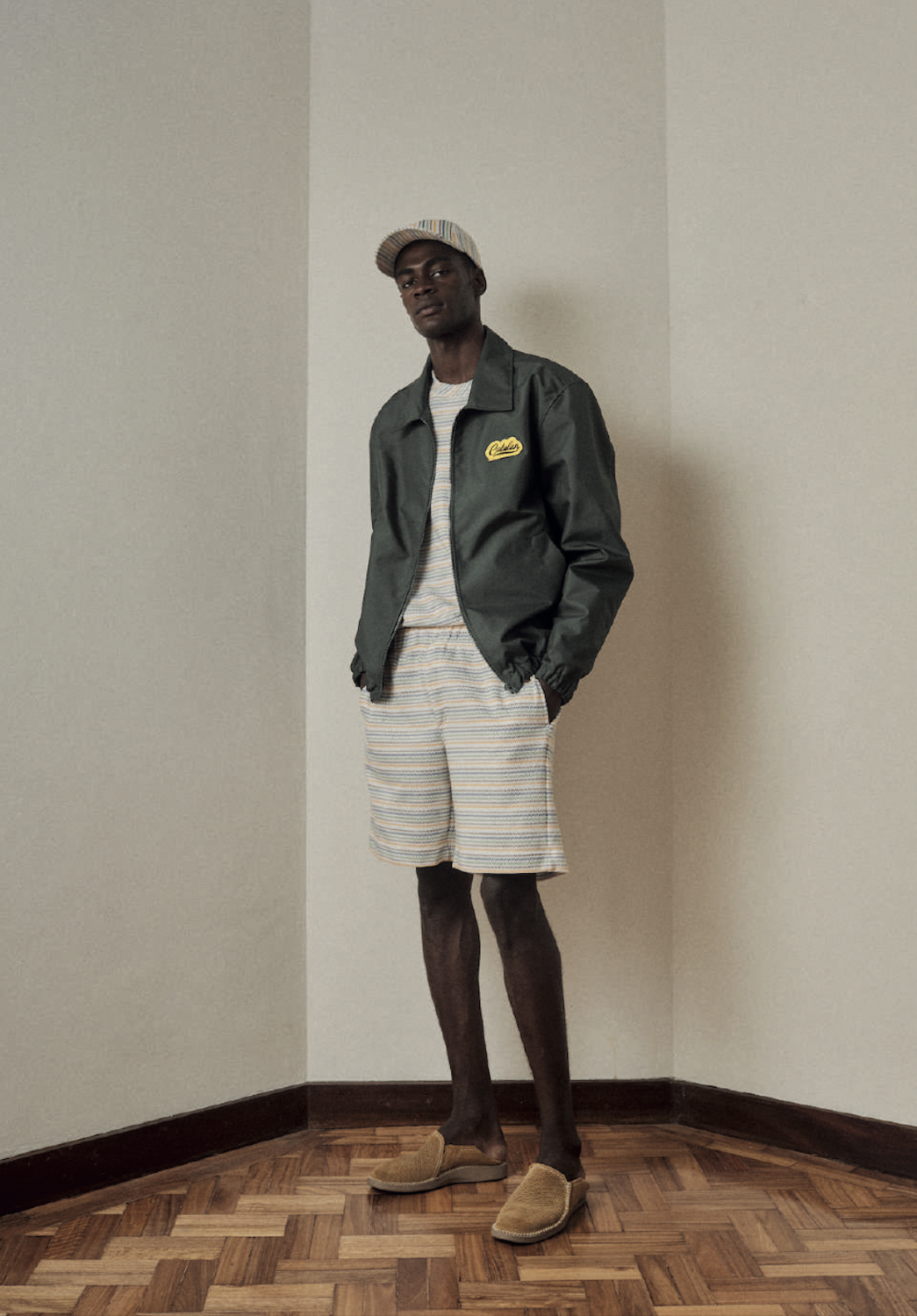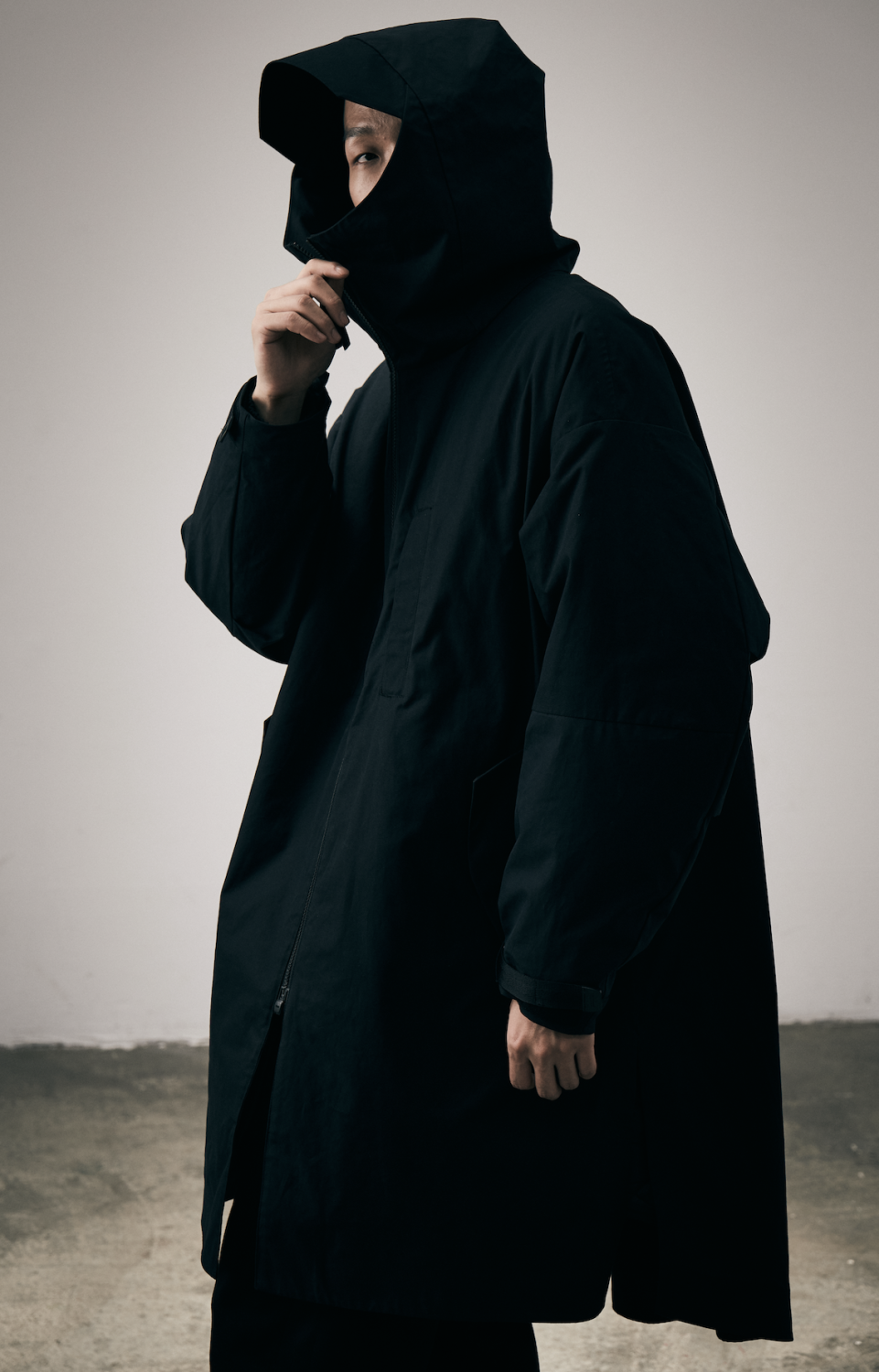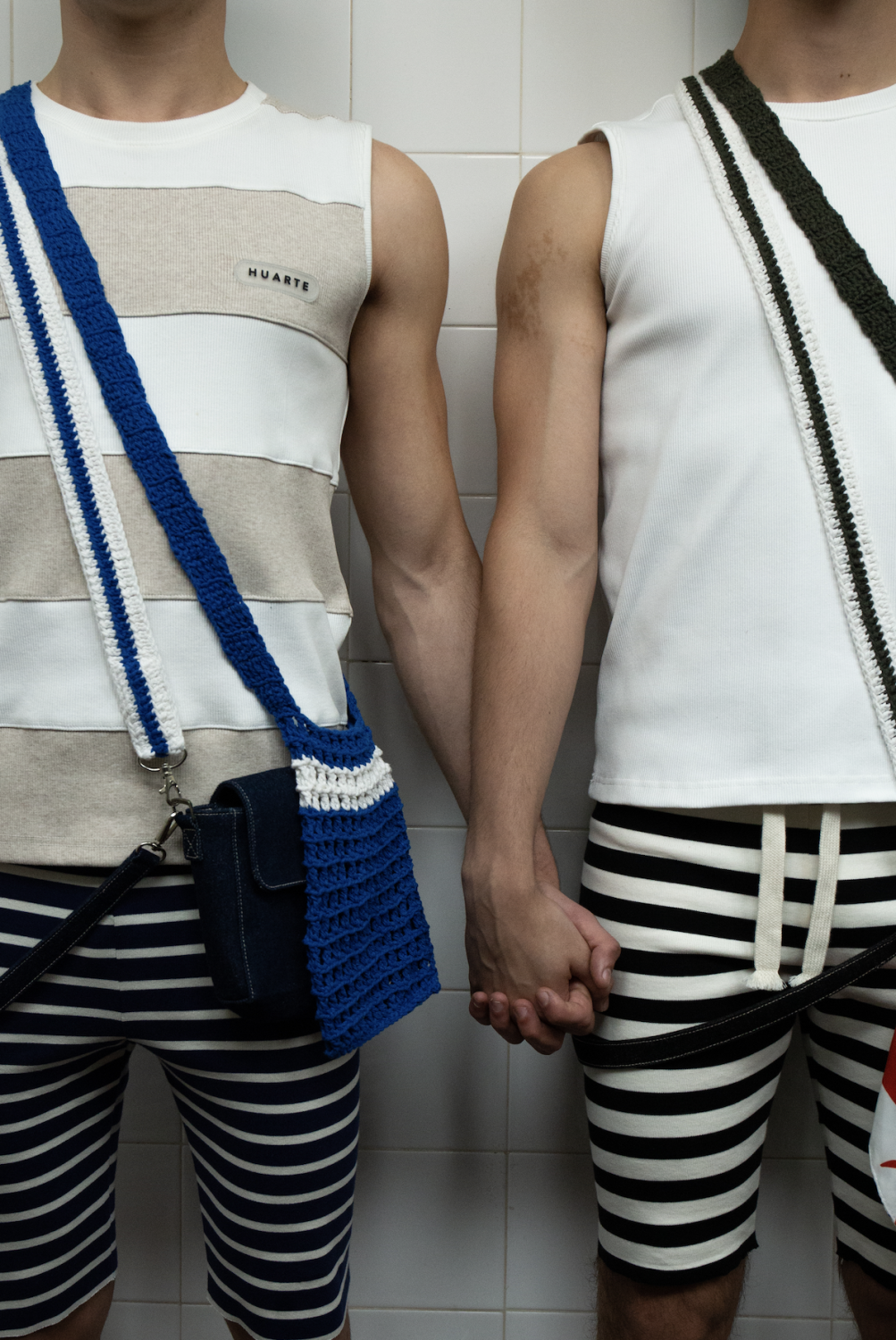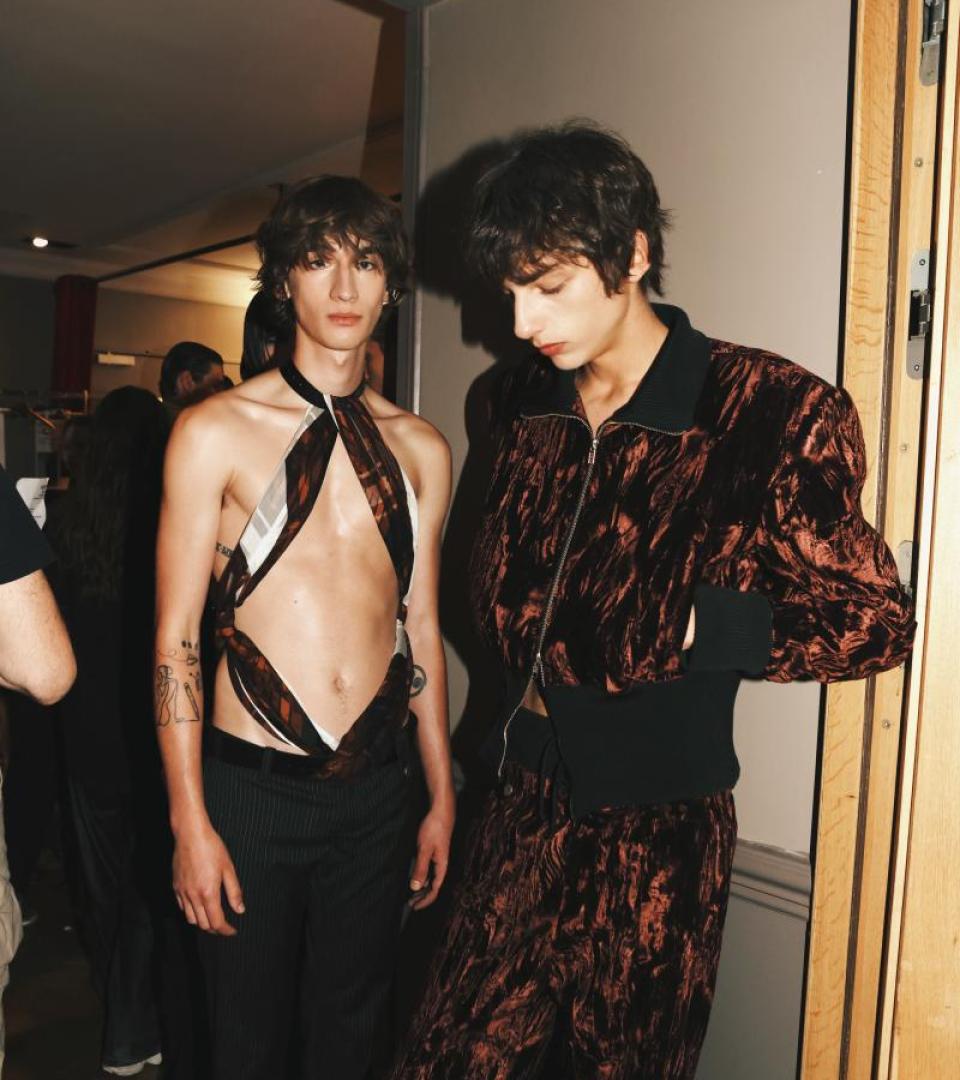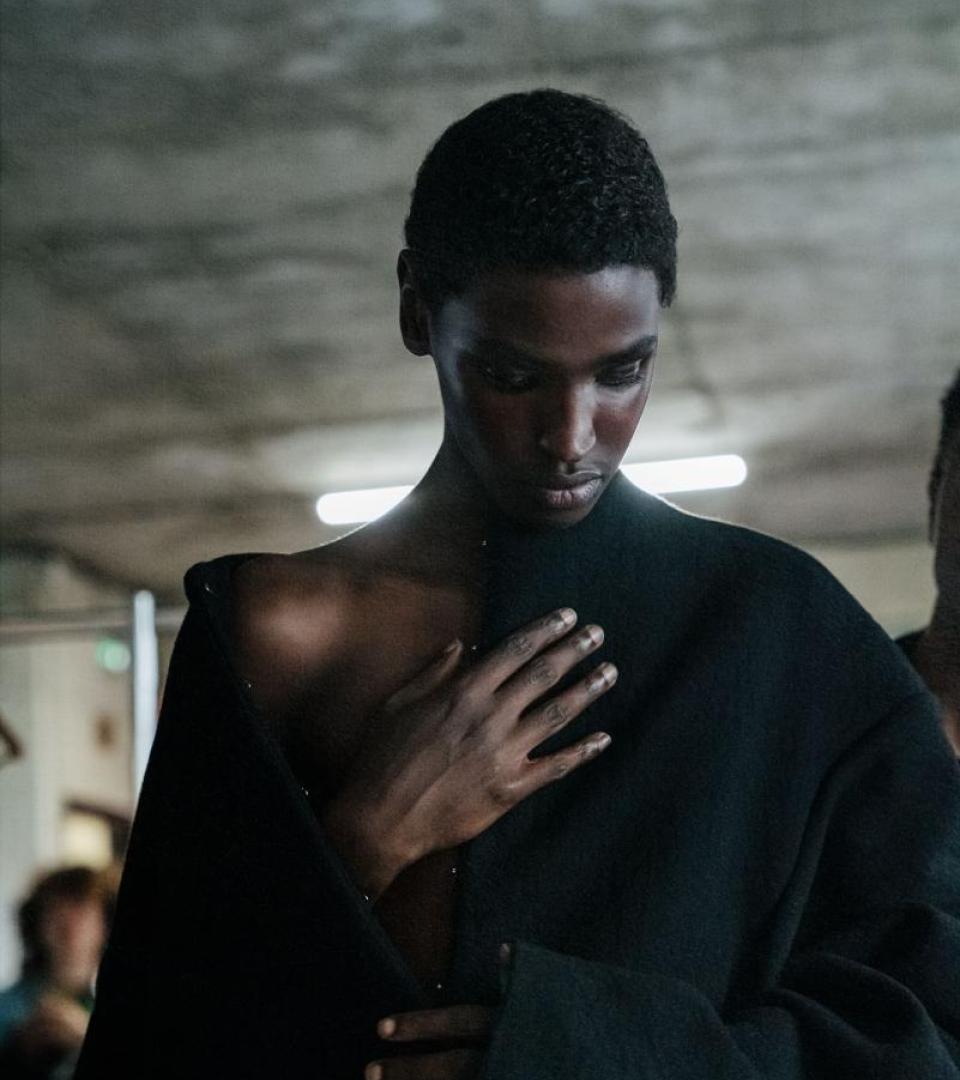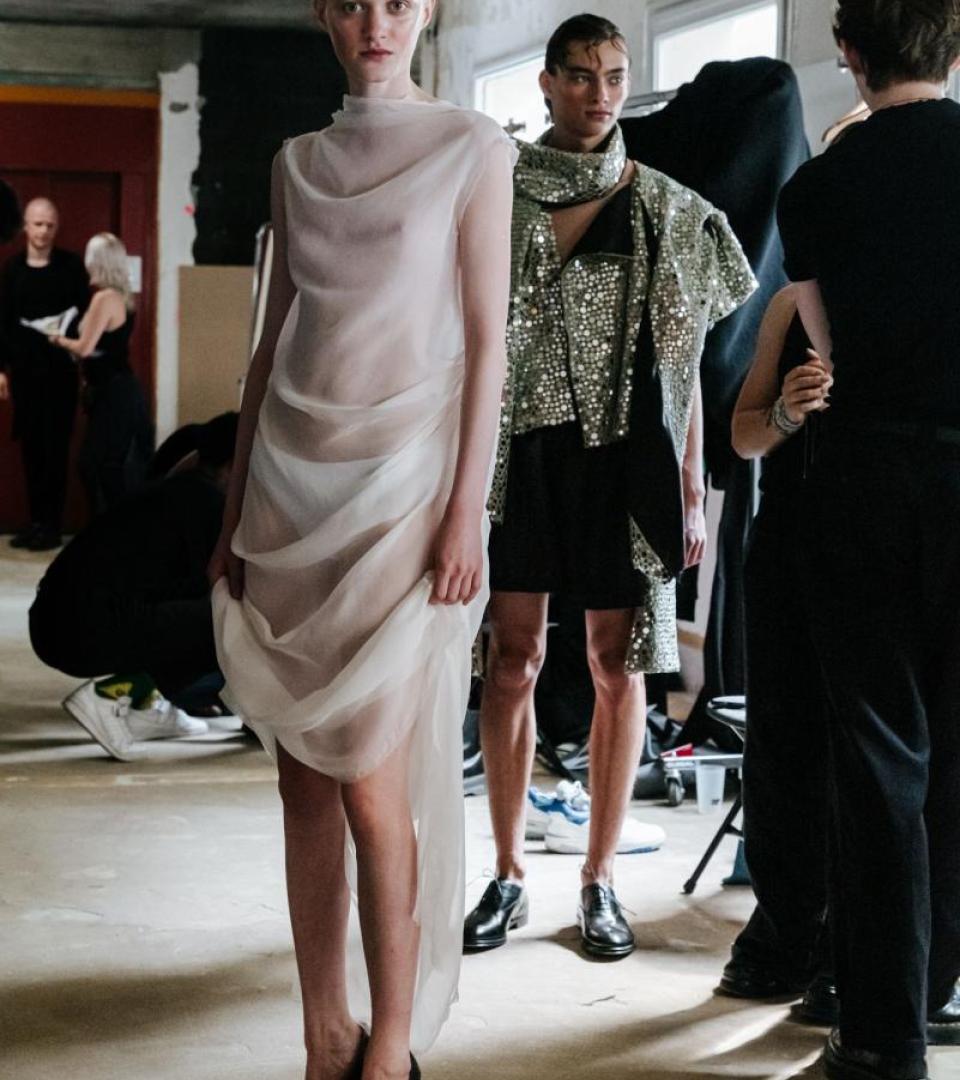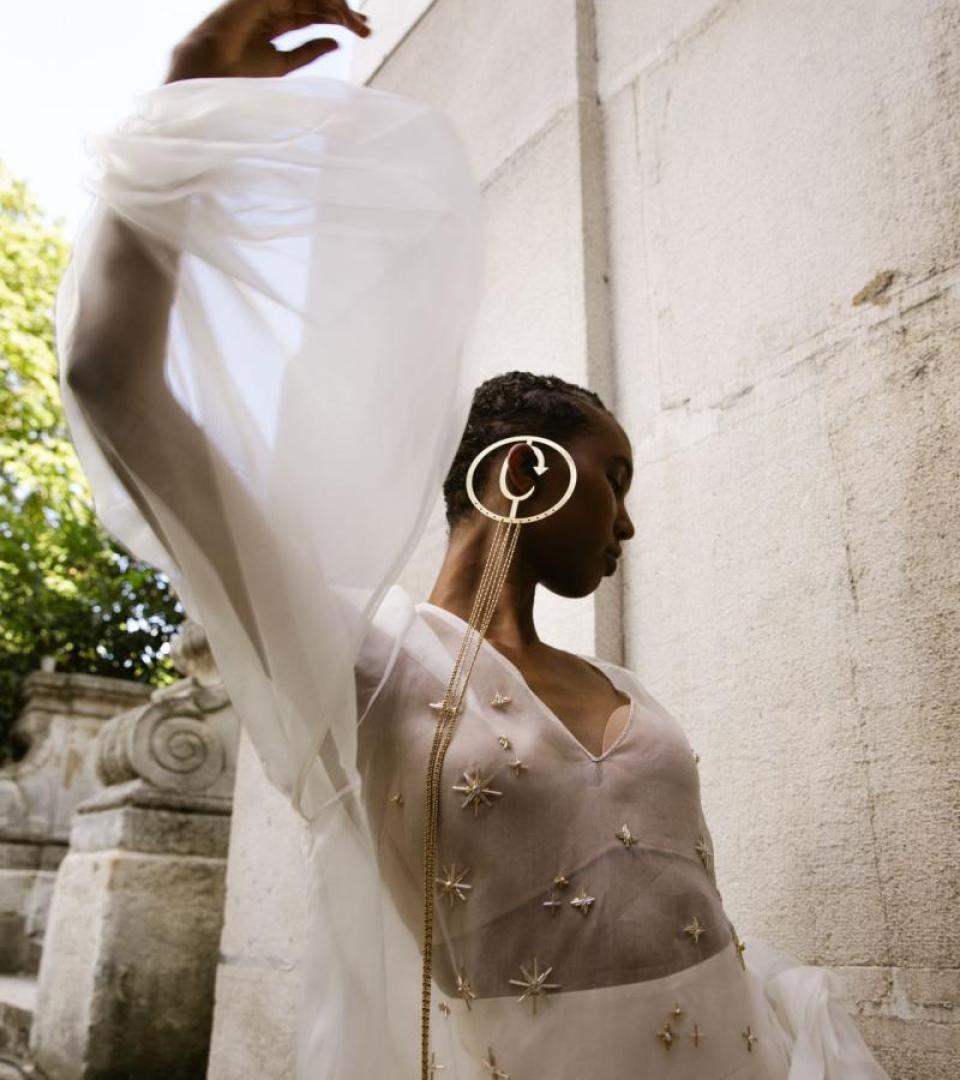A Tranoï as diverse as ever
By Gianluca Cantaro
Tranoï, the Paris Fashion Week trade show partner, opens its doors from June 22nd to 25th with 70 men's brand from all over the world at the Gaîté Lyrique, an emblematic Paris venue in the heart of the Marais. The location, entirely redesigned by the new management team (Arty Farty, ARTE France, SINGA, makesense et Actes Sud), became a cultural epicentre dedicated to artistic creation and social commitment. It offers various new exhibition spaces – including a gallery workshop, immersive room and sound room), offering a unique fashion experience. The FHCM spoke with Boris Provost, Tranoï's CEO, about this edition with all its news and excitement.
In the era of showing off and self-promotion, how does a trade show keep its significance?
Boris Provost: When you are a fashion designer or a new brand, the trade show is still the number one tool to develop your business in the B2B system for exposure to the retailers.
Is selection one of the ways to keep it high?
BP: It's definitely the best way. When I joined the company four years ago, we reorganised the procedures establishing a committee of experts that meets every week with our team to scan all the brands and then supply the best proposals to buyers a new formula mix.
Which are the most important features that a brand must meet to be part of Tranoï?
BP: During the selections, we analyse the following four aspects: style, singularity of the collection, its value for money, strategy and perspective. We evaluate what kind of effort they want to put in, which market they target, which region, who is the final client, who are the competitors, positioning and sales development.
What are the highlights of this June 2023 edition?
BP: It is a new event and we call it "of the first times". First time at Gaîté Lyrique, that reopens after 6 months of renovation, the first time that we have a selection of designer from the Paris Fashion Week, the first time that we host the chinese designers, so far they were not travelling. we signed a partnership with Chinese Fashion Association in the beginning of this year and we'll host 2 for men and 8 for womenswear in September. It's the starting point of this collaboration and we'll see the new faces from there. Then we'll work also with Berlin Showroom and they will present 7 very emerging talents. Last but not least, we'll organise a catwalk with 3 Korean designers (Sling Stone, Beyond Closet and Ul:kin) and they will show for the first time in Paris on Saturday 24th June at 6pm.
Recent reports suggest that young generations are starting to discover tailoring and craftsmanship. Do you feel this?
BP: Yes, craftsmanship is one trend that we want to highlight for this season focusing on designers who work with embroideries and tailoring, and emphasising a sense of heritage, but reinterpreted by the new generations.
On the other hand, are streetwear and sportswear still staples of man's fashion?
BP: There is increasing demand from retailers for streetwear. Actually, this is not the usual positioning for Tranoï, but for the first time, we are hosting new faces of the streetwear, from Korea and Portugal
How is genderless style influencing a men's trade show?
BP: In the morning of the opening day, we organise a press conference where we talk about an exclusive study by Leherpeur Paris "Masculiel: The new genderless. How has the new generation embraced genderlessness and how is it changing men’s fashion codes?" We include testimonials from Valentine Gauthier (founder of Value), Basile Dadaux (founder of Again), Yacine Challal (founder of Y Paris). To call it a trend is confining; now it's a social matter. Fashion-wise we have it in different languages the gender fluid styles: the unisex pieces, women's brands that want to launch men's collections, etc. Many trends are under this big umbrella called genderless and it's a beautiful thing expressed also by young generations. We’ve analysed that young people from 18 years old until 30 can wear anything from skirts to jewellery and they don't care about judgements. The older people are a bit more conservative and prefer a new elegance where the silhouette is more fluid, but not the extravaganza.
How can creativity still be fed in modern times?
BP: Tranoï really looks at very emerging brands. The key point is to validate one designer, then it's our part to support them on the business side in order to make them ready to enter the B2C world.
Tranoï has brands from all over the world. Considering the selection process for this edition, which are the most exciting countries in terms of creativity?
BP: Tranoï was created in 1998, and since then we are the destination in Paris to discover new international designers. We developed partnerships with Korea, China, Brazil, Berlin, and we want to reinforce this. We are strong for Asian designers; we expect a lot from China. Korea is the most creative country at this time and we receive many requests. Portugal is becoming very interesting – not anymore just for manufacture and production. The new generations are very interesting, and we have five brands. Also, Brazil is coming back. and we'll have one designer that explores craftsmanship for men. Usually they were more into beachwear, but this one is more into craftsmanship, heritage and the indigenous culture. The new Brazilian government is investing a lot in promoting internal creativity abroad and pushing the export. We hope to have more in the next editions, this is the very first step but very promising.
Can you mention the most surprising and interesting brand to watch of this edition in terms of vision/creativity/production?
BP: I would like to highlight Baziszt, a new brand for us even if it has existed since 2021. It's completely devoted to craftsmanship and keen on embroidery. They do unique pieces only made by hand that can be customised for special retail selection; they are very interesting in terms of product services for clients. They make you feel that you want their items as they are very seductive. They have come from nowhere, we started to follow them on Instagram and finally we met the designers. They were also at the last Pitti Uomo 104, which went very well for them.
This interview has been lightly edited for clarity.
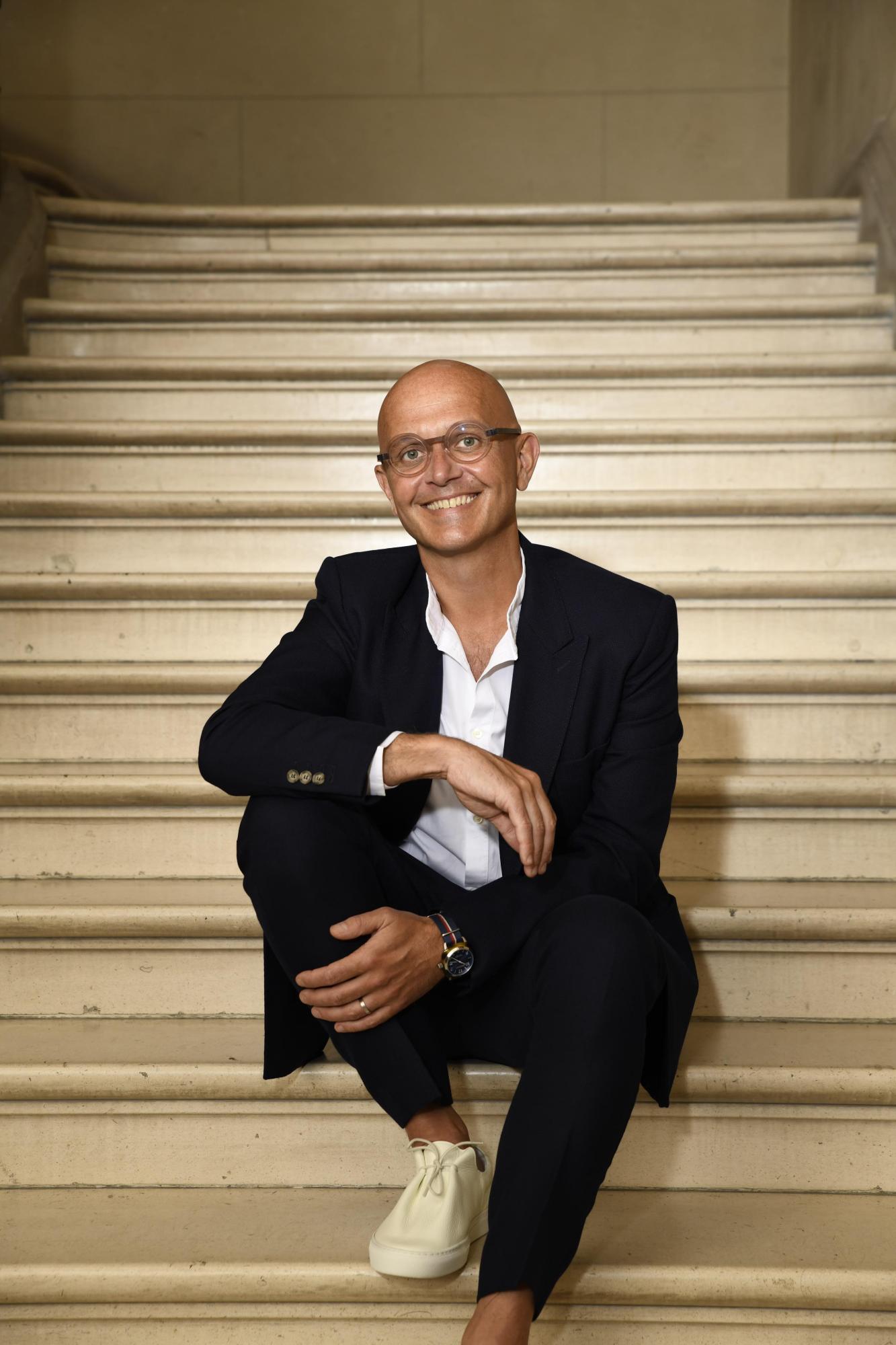
The Spring-Summer 2024 edition focuses on both countries and specific trends. Securing relationships with worldwide fashion institutions, Tranoï keeps its leading position as a source of inspiration for professionals and amateurs.
For the first time, this edition features Korean trend-setting men’s fashion through the exclusive partnership with Seoul Fashion Week and the Seoul Metropolitan Government. There are six labels in the spotlight: Three as a presentation (Acceptance Letter Studio, Ajobyajo, Blr Bluer) that can be discovered in a dedicated pavilion and three in an exclusive Spring-Summer 2024 show, with Sling Stone, Ul:Kin, Beyond Closet that takes place on Saturday, June 24th. China has returned thanks to the "China Select" program in partnership with the China Fashion Association (CFA). And two designers will be present, having been selected for their know-how and innovation; they are Valleyouth and Three in All.
The German Berlin Showroom that has supported local creativity since 2013 will present seven designers as part of their 10th anniversary. Here, you can discover Ginamelosi, Impari, Katharina Dubbick, Luise Zücker, Perlensau, Starstyling worldwide,Vladimir Karaleev. Portuguese designers increase from three to five—David Catalan, Estelita Mendonça, Huarte, Senscommon and Pedro Pedro—and they will have a feature stage at Tranoï thanks to the partnership established in 2021 with Portugal Fashion that nurtures a new generation of creatives within the country. Also, Brazil is back and the coolness of San Paolo and Rio Fashion weeks from the early 2000s seems revived two decades later. Andrè Namitala, of Brazilian origin, with his brand Handred, has mastered a new wave of tailoring and minimalist cuts made of natural materials such as linen, silk and Brazilian cotton. The brand has been embraced among both male and female customers and this enabled the designer to open three boutiques in his native country.
As Tranoï is a trend setter by nature, this season they highlight big fashion trends. While "streetwear" is not usually the main topic, the time is ripe to embrace it. Within the last decades, this trend has reshaped the men's aesthetic and what keeps it intriguing is the ability to always be surprising and fresh.The selection at the Gaîté Lyrique will be exciting to discover. With its pastel palette and clean but comfy design, Beyond Closet, looks into workwear with a touch of style, while Ul:kin mixes men's classics and leisurewear. Isnurh plays with prints, while Kamu has pattern in its DNA, and David Catalan looks at the basketball and baseball courtyards. Worth noting, the Korean label, Kolon Sport, which inlcudes performance brands Weather Monster and Lteks, that make their debut in Paris with eye-catching styles for sport and outdoor lovers. To counterbalance, the "Craftsmanship," also part of Tranoï's DNA, is another relevant trend focus.
Tailoring, embroideries, and unique pieces are showcased through an innovative selection. Country Made, from New Delhi, is inspired by a military aesthetic recreated by Indian craft; Huarte is a carefree wardrobe for both men and women devoted to holidays and free-time; Baziszt celebrates the beauty of embroideries; and Silpa plays with distressed fabrics, stitching and patchworking. "Genderless" is more a social evolution rather than a fashion trend, but it is strongly mirrored in human aesthetics. A beautifully crafted selection of names summarise the latest labels to watch: Along with Value's softness, there’s Sling Stone's unisex approach; Again's delicate sportswear; Pedro Pedro, which stands out for its ability to mix fabrics and materials from both women and men's wardrobes for a unique look.
A selection of local brand should not be missed if you visit Tranoï in Paris. "The new French scene" is refreshing the men's look without forgetting sustainability. Along with Again and Baziszt, Armine Ohanyan defines itself a techno couture brand that conjugates craftsmanship and new technologies. Ekivoc's minimalist and ethic streetwear is rooted in French savoir-faire with an holistic approach to design, using mainly organic and/or recycled materials, Erevan presents timeless pieces that fit both a relaxed weekend in the city and endless summer travels, while Value excites with his soft tailoring soul.

